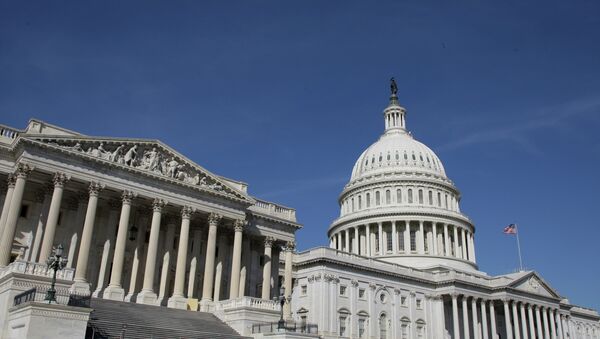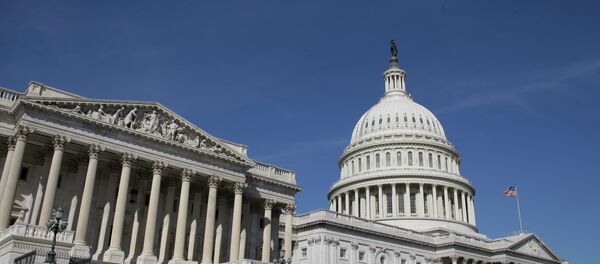Beach told Radio Sputnik that over the last two decades the problem has reached a point where "real lawmaking and reforms are almost impossible." According to Beach, the major factor behind this unhealthy competition within the Congress is that the electoral system makes it very difficult for moderate candidates to be elected.
"Americans have moved into communities of like-minded people, which means that United States really divided both at the state level and across states in blue and red districts," Beach detailed. "That dynamic produces quite radical polarizing candidates, so they are either very very far to the left, or very very far to the right."
Beach blamed a system that draws electoral districts that produce extreme candidates who speak specifically either only to Democrats or Republicans. Middle-road, moderate candidates, came from electoral districts that had both conservative and liberal voters, an arrangement that currently isn't the case.
But the current system, he claims, is one where a single candidate wins from a hardcore Republican or Democrat electoral district, which encourages a two-party system, leaving almost no chance for moderate candidates to contribute to a more balanced form of government.
Money is another reason behind the inability of Republicans and Democrats to work as a team, Beach stated, citing several moderate candidates who had to retire because they were spending most of the time "not on actually governing, but on raising funds."
Since fundraising is increasingly provided by polarized outside groups supporting extreme candidates, those candidates become increasingly dependent on upholding the agenda espoused by where the money is coming with, Beach observed.
He added that a better leadership is not the solution, as "there's a whole range of problems…that go beyond the ability of one person to change things." Among these problems are institutional rules in the Senate in which small extremist minorities can block the choice of a clear majority.
According to Beach, the only way out is for the states to change how they draw electoral districts. Changing electoral rules "is probably one of the most promising pathways to reform and going back to a period where both parties actually cooperated and compromised," he said.



